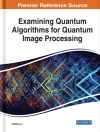Information Systems Development (ISD) progresses rapidly, continually creating new challenges for the professionals involved. New concepts, approaches and techniques of systems development emerge constantly in this field. Progress in ISD comes from research as well as from practice.
This conference will discuss issues pertaining to information systems development (ISD) in the inter-networked digital economy. Participants will include researchers, both experienced and novice, from industry and academia, as well as students and practitioners. Themes will include methods and approaches for ISD; ISD education; philosophical, ethical, and sociological aspects of ISD; as well as specialized tracks such as: distributed software development, ISD and knowledge management, ISD and electronic business / electronic government, ISD in public sector organizations, IOS.
Cuprins
Morally Successful IT Projects.- The Risks of User-Supplied Content Online.- Evaluating Online Human Rights Resource Centres.- ‘Calling Passengers’ — An Ethical Problem in the Design of Self-Service Web Sites Amongst Low-Cost Airlines in Ireland.- Counterfactuals and Hybrid Reasoning in an Ontolog.- Holistic Project Management Guidelines for Information Systems Evaluation.- ORE: A Framework to Measure Organizational Risk Du.- Evaluating the Driving Factors and the Suppressing Factors Related to IS Outsourcing in Four Finnish Information Systems Organizations.- Strategic Dimensions of Software Development in a Supply Chain.- Assessment Tools as Drivers for SPI: Short-Term Benefits and Long-Term Challenges.- Improving Organizational Performance by Raising the Level of Business Process Orientation Maturity: Empirical Test and Case Study.- The Information Systems Security Process: Through and Anthropological Lens.- Securing Systems Intelligently: The Logical Approa.- Trust Ontology for Information Systems Development.- Model Curriculum for a Bachelor of Science Program in Business Information Systems Design (BISD 2007): Organisational Impacts.- Project Managers — Do They Need to Be Certified?.- SArt: Towards Innovation at the Intersection of Software Engineering and Art.- Effects of Natural Language Complexity on Student Performance in Object-Oriented Domain Analysis.- Facilitating Experience and Re-experience: The Role of ‘Virtualisation’ in Information Systems Development Education.- The Concept Map-Based Knowledge Assessment System with Reduction of Task Difficulty.- The Complexity of an E-Learning System: A Paradigm for the Human Factor.- Specification for Designing Web-Based Training Courses and an Application Model Based on IT.- Enhancing Efficiency and Effectiveness of Online Asynchronous Support Using Case-Based Reasoning Within an Online Learning Environment.- Effort Estimation Using Social Choice.- Work Progress Estimation from Structured Requireme.- Towards Ontology-Based MAS Methodologies: Ontology-Based Early Requirements.- An Information System Quality Framework Based on Information System Architectures.- On Finding Suitable Designs for Whole-Part Relationships in Object-Relational Databases.- On the Problem of Semantic Loss in View Integration.- Object-Relational Database Design: Can Your Application Benefit from SQL:2003?.- Cell Store: Educational and Experimental XML-Native DBMS.- An Integrated System for Querying Medical Digital.- Information Management Between Academic and Internet Communities.- Integrating Requirements Specifications and Web Services Using Cognitive Models1.- Semantic Service Description Framework for Address.- Automatic Generation of Executable Code from Software Architecture Models.- Automating Software Processes.- Ontology Transformation to Conceptual Data Model U.- Definition Metamodel of ITIL.- An Approach for WSDL-Based Automated Robustness Testing of Web Services.- Events Propagation from the Business System Level.- An Evaluation of the State of the Art in Context-a.- The Development and Validation of Data Transformat.












